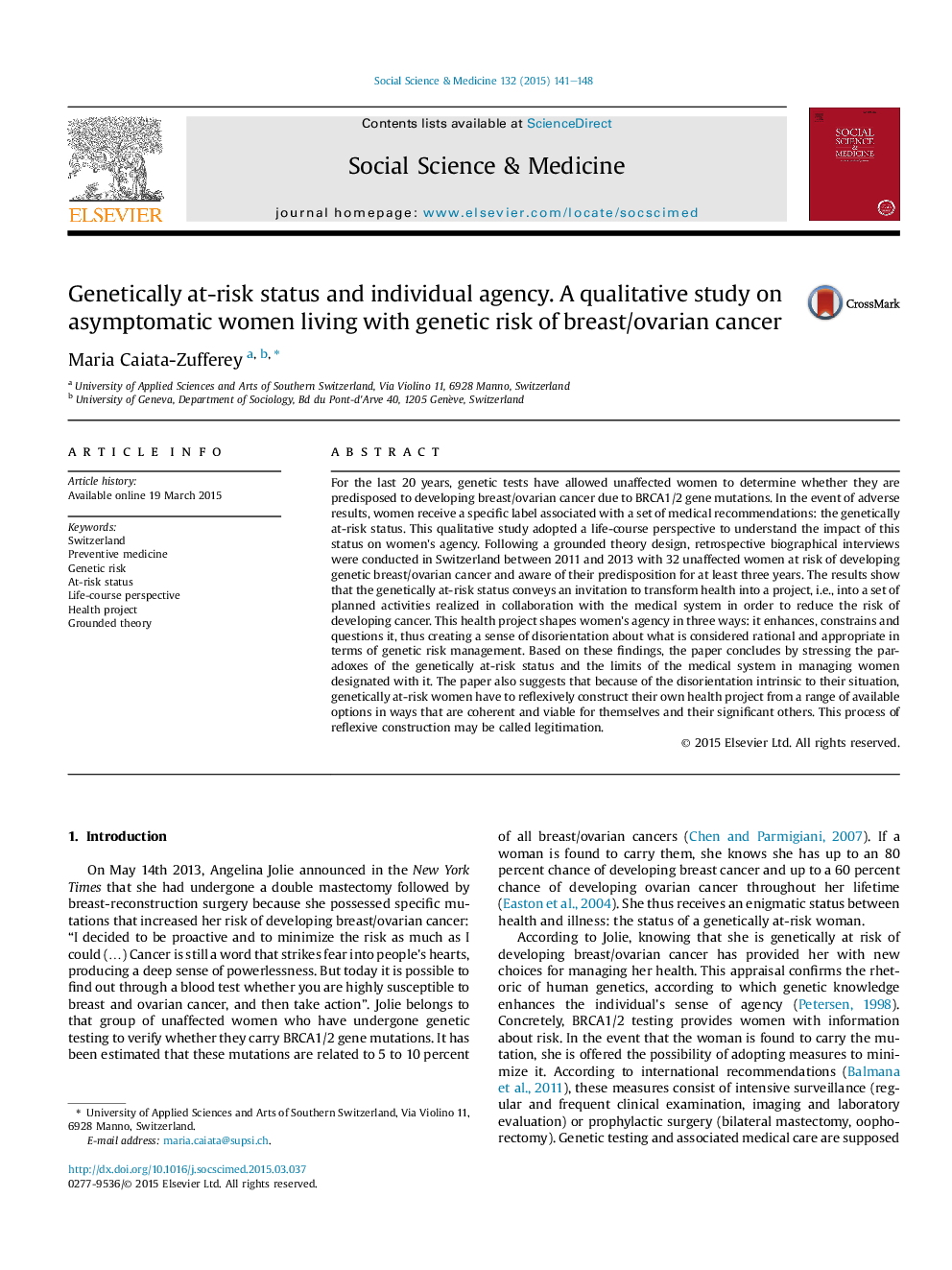| کد مقاله | کد نشریه | سال انتشار | مقاله انگلیسی | نسخه تمام متن |
|---|---|---|---|---|
| 7332812 | 1476036 | 2015 | 8 صفحه PDF | دانلود رایگان |
عنوان انگلیسی مقاله ISI
Genetically at-risk status and individual agency. A qualitative study on asymptomatic women living with genetic risk of breast/ovarian cancer
ترجمه فارسی عنوان
وضعیت ژنتیکی در معرض خطر و آژانس فردی. یک مطالعه کیفی در مورد زنان بدون علامت که با خطر ژنتیکی سرطان پستان / تخمدان زندگی می کنند
دانلود مقاله + سفارش ترجمه
دانلود مقاله ISI انگلیسی
رایگان برای ایرانیان
کلمات کلیدی
سوئیس، داروهای پیشگیرانه، خطر ژنتیکی، وضعیت خطر، چشم انداز دوره زندگی، پروژه بهداشتی، تئوری مبتنی بر،
موضوعات مرتبط
علوم پزشکی و سلامت
پزشکی و دندانپزشکی
سیاست های بهداشت و سلامت عمومی
چکیده انگلیسی
For the last 20 years, genetic tests have allowed unaffected women to determine whether they are predisposed to developing breast/ovarian cancer due to BRCA1/2 gene mutations. In the event of adverse results, women receive a specific label associated with a set of medical recommendations: the genetically at-risk status. This qualitative study adopted a life-course perspective to understand the impact of this status on women's agency. Following a grounded theory design, retrospective biographical interviews were conducted in Switzerland between 2011 and 2013 with 32 unaffected women at risk of developing genetic breast/ovarian cancer and aware of their predisposition for at least three years. The results show that the genetically at-risk status conveys an invitation to transform health into a project, i.e., into a set of planned activities realized in collaboration with the medical system in order to reduce the risk of developing cancer. This health project shapes women's agency in three ways: it enhances, constrains and questions it, thus creating a sense of disorientation about what is considered rational and appropriate in terms of genetic risk management. Based on these findings, the paper concludes by stressing the paradoxes of the genetically at-risk status and the limits of the medical system in managing women designated with it. The paper also suggests that because of the disorientation intrinsic to their situation, genetically at-risk women have to reflexively construct their own health project from a range of available options in ways that are coherent and viable for themselves and their significant others. This process of reflexive construction may be called legitimation.
ناشر
Database: Elsevier - ScienceDirect (ساینس دایرکت)
Journal: Social Science & Medicine - Volume 132, May 2015, Pages 141-148
Journal: Social Science & Medicine - Volume 132, May 2015, Pages 141-148
نویسندگان
Maria Caiata-Zufferey,
